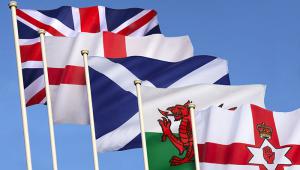Councils are looking for more imaginative ways of raising revenue and reducing costs. But punitive sanctions – such as reducing benefits if overweight people refuse to exercise – will only forfeit public trust
It seems paradoxical that at a time when local authorities are facing such a massive squeeze on their finances, extra powers and responsibilities are coming their way.
Councils are of course gearing up to take the lead on public health in April, but with extra responsibilities should come a measure of caution in how they are discharged.
A report published last week by the Local Government Information Unit and Westminster City Council suggests ‘linking welfare measures to behaviours that promote public health’ as a way of curbing the numbers succumbing to lifestyle diseases like Type 2 diabetes.
The report, A dose of localism; the role of councils in public health, states that:
‘The increasing use of smartcards for access to leisure facilities, for instance, provides councils with a significant amount of data on usage patterns. Where an exercise package is prescribed to a resident, housing and council tax benefit payments could be varied to reward or incentivise residents.’
So does this mean that fatties who don’t manage 50 laps in the municipal pool will be ‘incentivised’ out of their housing benefit?
Meanwhile a recent report in the Sunday Times suggests that up to 20 councils will soon inherit powers to fine motorists for 26 additional road offences. Currently, they can only fine drivers for parking infractions and misusing bus lanes.
The paper claims the move ‘follows lobbying from local councils, which hope to raise millions of pounds by imposing fines of up to £70’. London councils already have the powers and issued a staggering 560,000 penalty tickets last year, raising, the paper claims, £37m.
Transport minister Norman Baker says he has had ‘a lot of approaches from local government which wants to use these powers’.
The use of punitive sanctions is explosive stuff and provokes all sorts of questions about the proper boundaries of state action, the demonisation of groups within society and the curtailing of personal liberty. Clearly, either measure is deeply antagonistic to the groups who would be on the receiving end, while the politicians currently have little mandate for such significant changes.
Furthermore, implementing micro-penalties for ‘bad’ behaviour – precisely at the time when local authorities are cutting valued public services – sends out a potentially disastrous message. It appears as though councils are going out of their way to make life harder for people already struggling to get by.
The reverse, of course, is undoubtedly true; but the net effect is that either measure comes down to hard cash: saving it by cutting the costs of preventable illnesses and raising it by penalising errant car users. The virtuous behaviour the penalties are seeking to elicit will be lost amid the general cynicism that will greet either move.
Just as many drivers see speed cameras as a money-raiser for the police, so, too, the public will cast a jaundiced eye over the motives behind these proposals.
This perception matters. At a time when councils need to engage in honest debate with the communities they serve about the massive task they face in radically reducing services, forfeiting public trust by reaching for money-spinning gimmicks so readily simply makes that task even harder.
Kevin Meagher is a former special adviser in the last government and a political blogger










